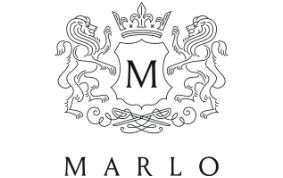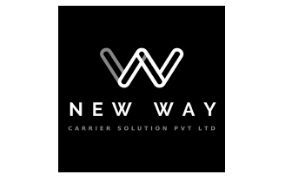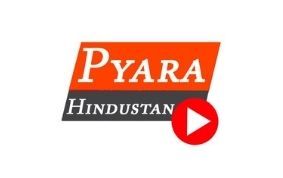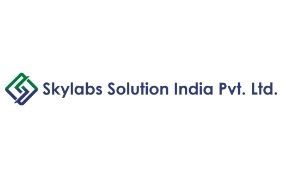Introduction
The French Republic, renowned for its high population density and substantial purchasing power per capita, provides a dynamic platform for trade and flexible channels for conducting business within its borders. Business France extends a warm welcome to both domestic residents and foreign entrepreneurs from around the world. The economy boasts a diverse pool of skilled professionals with significant experience, contributing to the growth of various businesses.
Benefits of Company Registration in France
Access to a Robust Market: Company registration in France provides access to a thriving market within the European Union, offering numerous opportunities for growth and expansion.
Strategic Location: Positioned at the heart of Europe, a registered company in France benefits from a strategic location, facilitating easy access to neighboring markets and enhancing international business connections.
Legal Credibility: Registering a company in France ensures legal recognition and credibility, instilling trust among clients, partners, and investors.
Financial Support: Businesses in France may be eligible for various financial incentives, subsidies, and support programs, fostering economic development and innovation.
Talent Pool: France boasts a skilled and diverse workforce, providing businesses with access to a pool of talented professionals that can contribute to the success and growth of the company.
Stable Economic Environment: The country’s stable economic environment and commitment to business-friendly policies create a conducive atmosphere for long-term business sustainability.
EU Membership Benefits: With its EU membership, a registered company in France gains access to the single market, facilitating trade and collaboration across the European Union.
Cultural and Lifestyle Appeal: Operating a business in France offers a unique blend of rich cultural experiences and a high-quality lifestyle, making it an attractive location for entrepreneurs and employees alike.
Innovation Ecosystem: France encourages innovation and research, providing companies with opportunities to engage in cutting-edge developments and collaborations.
Global Recognition: A company registered in France benefits from the country’s global reputation for quality, craftsmanship, and innovation, enhancing its brand image on the international stage.
Eligible Business Structures under Company Registration in France
Sole Proprietorship (Entreprise Individuelle): A business structure where a single individual owns and operates the business, bearing full responsibility for its debts.
Limited Liability Company (Société à Responsabilité Limitée – SARL): A popular choice offering limited liability for shareholders, making it suitable for small to medium-sized enterprises.
Joint Stock Company (Société Anonyme – SA): Ideal for larger enterprises, it allows for capital to be raised through the sale of shares, offering limited liability for shareholders.
Partnership (Société en Nom Collectif – SNC): A structure where partners jointly own and manage the business, sharing both profits and liabilities.
Simplified Joint Stock Company (Société par Actions Simplifiée – SAS): Combining flexibility and limited liability, the SAS is well-suited for businesses with multiple shareholders, offering customization of governance structures.
Branch of a Foreign Company (Succursale): Allows a foreign company to establish a presence in France without creating a separate legal entity.
Cooperative (Société Coopérative): A business structure where members actively participate in decision-making and share profits based on their contributions.
Micro-Enterprise (Micro-Entreprise): Suited for small businesses, this simplified structure has specific tax advantages and reduced administrative requirements.
Farmers’ Cooperative (Société Coopérative Agricole – SCA): Designed for agricultural businesses, it enables farmers to collaborate for mutual benefit.
Professional Limited Liability Company (Société d’Exercice Libéral – SEL): Specifically for professionals such as lawyers or doctors, offering limited liability within their respective fields.
When considering company registration in France, choosing the appropriate business structure depends on factors such as size, nature of the business, and the level of liability protection desired.
Eligibility Criteria for French Company Formation
The fulfillment of the following criteria is essential for the registration of a company in France:
1. Objects Clause:
The memorandum’s objects clause must articulate the purposes for which the company is established.
2. Information on Key Executives:
Disclosure of vital information about executives is a prerequisite for company registration in France. This encompasses details such as shareholders’ names, registration address, and other relevant information, including visa-related data.
3. Information on Directors:
Detailed information about the company’s directors is required during the registration process.
4. Minimum Capital:
The minimum capital requirement is determined by the shareholders’ decision in the Articles of Association (AOA) and can be as minimal as EUR1. However, for a French Public Limited Company, a minimum capital of EUR37,000 is mandatory, with one-fifth of the authorized capital payable at the time of registration.
Documents for Company Registration in France
For company registration in France, the following requirements must be met:
Shareholders’ identification documents need to be notarized and translated.
Details about company managers, including their identification documents and appointment letters.
Submission of the Appointment of Manager Document.
Information on the Founders, including their addresses, visa details, passports, and other relevant data for the company.
Completion of the Application Form for Registration along with the required fees.
Notarized Memorandum of Association and Articles of Association.
Board Resolution, if deemed necessary.
Charter of the SARL.
A declaration affirming the manager’s lack of criminal convictions.
Utilization of forms provided by the Trade Registrar for the application process.
Publication of the decision to establish the company in the National Gazette.
Procedure for Company Registration in France
Choose Business Structure: Select the most suitable business structure (e.g., SARL, SA, SAS) based on your business size, nature, and ownership preferences.
Check Business Name Availability: Verify the availability of your chosen business name through the National Institute of Industrial Property (INPI) to ensure it is unique and not already in use.
Prepare Articles of Association: Draft the Articles of Association outlining key details about the company, including its purpose, structure, and internal regulations.
Appoint Directors/Managers: Designate directors or managers for the company, specifying their names, addresses, and roles within the organization.
Open a Bank Account: Establish a business bank account in France and obtain the necessary documentation for proof of account opening.
Prepare Statutory Documents: Create a set of documents, including the declaration of compliance, appointment of directors, and registered office details.
Register with Commercial Court: Submit the required documents to the Commercial Court (Tribunal de Commerce) or the Chamber of Commerce and Industry (CCI) in the jurisdiction where the company will operate.
Publication in Official Journal: Certain business structures, like SARL and SA, require publication of the company’s creation in the Official Journal of Legal Announcements (Journal Officiel des Annonces Légales).
Tax Registration: Register for taxation purposes with the French tax authorities (Direction Générale des Finances Publiques) to obtain a unique identification number for tax transactions.
Social Security Registration: If applicable, register the company and its employees with the French social security system.
Professional Regulations (if applicable): For regulated professions or specific industries, comply with any additional registration requirements set by relevant professional bodies or authorities.
Obtain Business Licenses: Depending on the nature of the business, obtain any necessary licenses or permits from relevant authorities.
Complete Inscriptions: Complete any additional registrations or inscriptions required for specific activities or industries.
Finalize Administrative Procedures: Fulfill any remaining administrative requirements and ensure ongoing compliance with French business regulations.
Why eStartIndia for Company Registration in France?
Our team of incorporation experts offers comprehensive end-to-end company incorporation services in France, providing assistance in the following ways:
Collecting and organizing all necessary documents for the registration process.
Compiling and preparing the required documentation for seamless registration.
Securing the selected company name through the French Authority’s reservation process.
Managing the certification application for the incorporation of your company on your behalf.
Facilitating the appointment of a Company Secretary for your firm.
Drafting the essential Memorandum and Articles for your corporation.
Assisting in the appointment of directors and shareholders within the company.
Advising on the optimal office location for your company.
Obtaining the necessary business licenses essential for the operation of your company in France.
We prioritize timely delivery of your company incorporation services in France. Our seasoned professionals comprehend the complexities of the incorporation procedures, ensuring an expedited process and facilitating your company’s establishment at a cost-effective price.









































